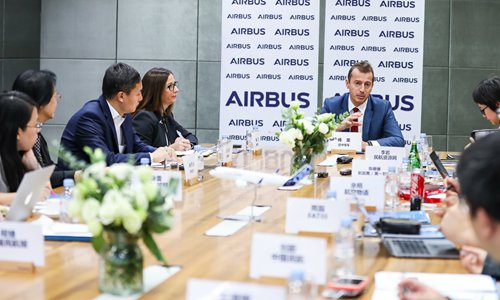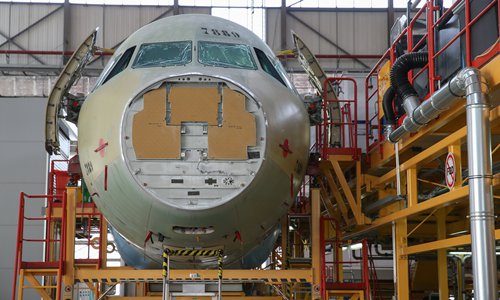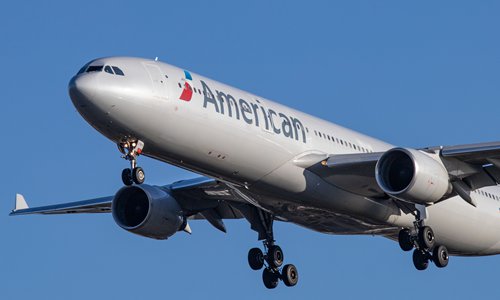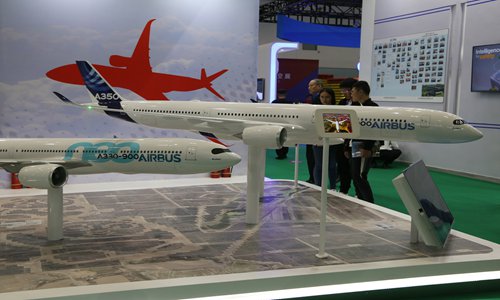SOURCE / INDUSTRIES
Airbus vows to increase production pace in China

Airbus CEO Guillaume Faury speaks in a press conference in Beijing on Thursday. Photo: Courtesy of Airbus China
As the aviation industry faces the challenge of delivery speed, Europe's largest aerospace group has bolstered its position in China, the would-be world's biggest aviation market, to better accelerate the global production pace.
"Over the past 20 years, Airbus's market share in China has increased from 15 percent to around 50 percent today, and about 20 percent of Airbus's aircraft are delivered to China. Airbus can confidently say that we are now the most in-depth cooperation manufacturer in China," Airbus CEO Guillaume Faury said in Beijing on Thursday.
His remark came after a memorandum of understanding signed between Airbus and its Chinese counterparts on Wednesday, in which both sides agreed to take practical and effective measures for new initiatives regarding both Airbus single-aisle and wide-body aircraft.
As part of Airbus' objective to reach a global A320 Family production rate of 63 aircraft per month in 2021, the Final Assembly Line Asia for the Airbus A320 Family in Tianjin remains on track to increase output to six aircraft per month by the end of 2019, a 50 percent increase compared to its original plan.
A350 XWB capabilities will be extended into the Airbus Tianjin wide-body Completion and Delivery Center (C&DC) from the second half of 2020. The C&DC is scheduled to deliver its first A350 aircraft from North China's Tianjin by 2021.
He said Airbus will also enhance cooperation in areas such as innovation cooperation and after-sales service.
To better increase its share in the Chinese market, Airbus has an innovation center in Shenzhen, South China's Guangdong Province, the first such center in the Asia-Pacific region.
In addition to working with teams from Airbus Europe, the innovation center has been actively engaging with local industry leaders as well as start-ups in China on technologies that are complementary to strengths in Europe.
"It is key for us to understand China's world-class innovation eco-system to better adapt our products to the local market," George Xu, CEO of Airbus China, said.
However, Faury said that China-US trade friction has impacted the aircraft manufacturing industry.
At present, single-aisle aircraft have seen no impact, but the demand for wide-body aircraft has shown signs of slowing, he said.
For Airbus in particular, there hasn't been much direct impact so far as the narrow-body segment is continuing to increase production speed, but "we're taking a wait-and-see attitude on the wide-body aircraft to see if it is affected by the trade war."
In terms of the grounding of Boeing's 737 MAX, he said Airbus has not profited from the issue, and the company is under pressure in different ways because of the issue.
"We get no short-term benefits on the commercial side, but we see more challenges and more pressure," he said. "Airbus keeps doing what we think is right, and there is not much positive effect for us."




